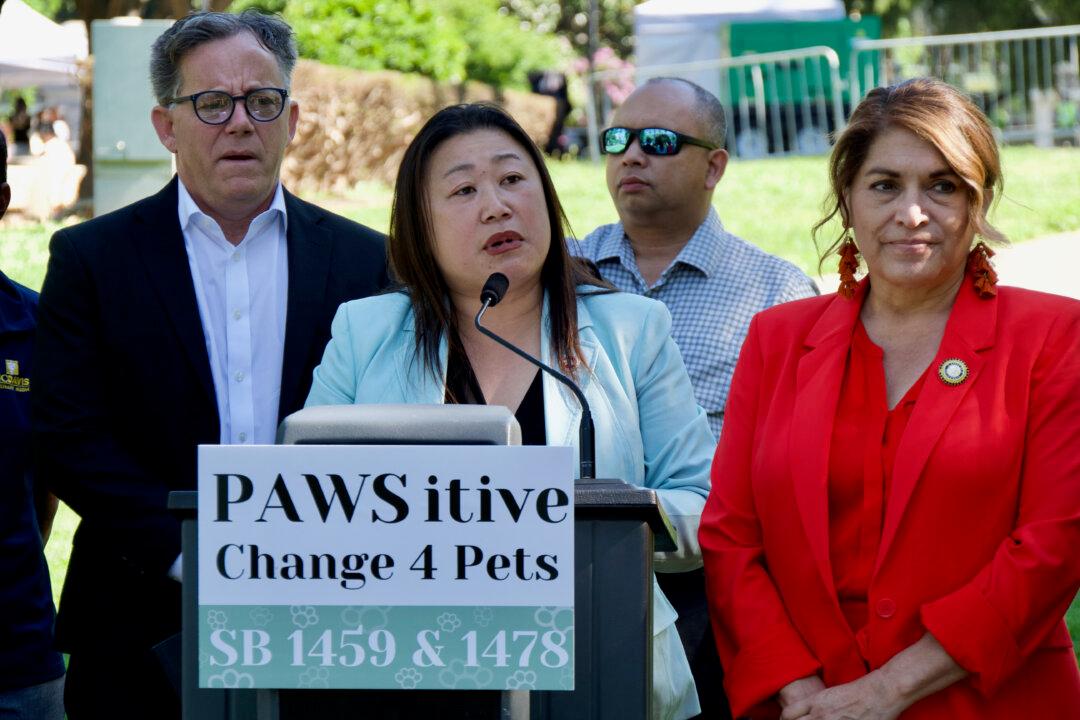SACRAMENTO—Three bills aimed at improving the quality of life for pets in California passed the Senate’s Business, Professions, and Economic Development Committee April 22.
Bipartisan Pet Protection Bills Advance in California Legislature
One bill requires shelters to publish the number of animals scheduled for euthanasia and kennel space available.

State Sen. Janet Nguyen speaks at a press conference for legislation protecting pets at the Capitol on April 22, 2024. Flanking her are Sen. Josh Newman, left, and Assemblywoman Sharon Quirk-Silva Travis Gillmore/The Epoch Times
Travis Gillmore is a White House reporter for The Epoch Times. He previously covered the California legislature and Gov. Gavin Newsom. Contact him at [email protected]
Author’s Selected Articles




